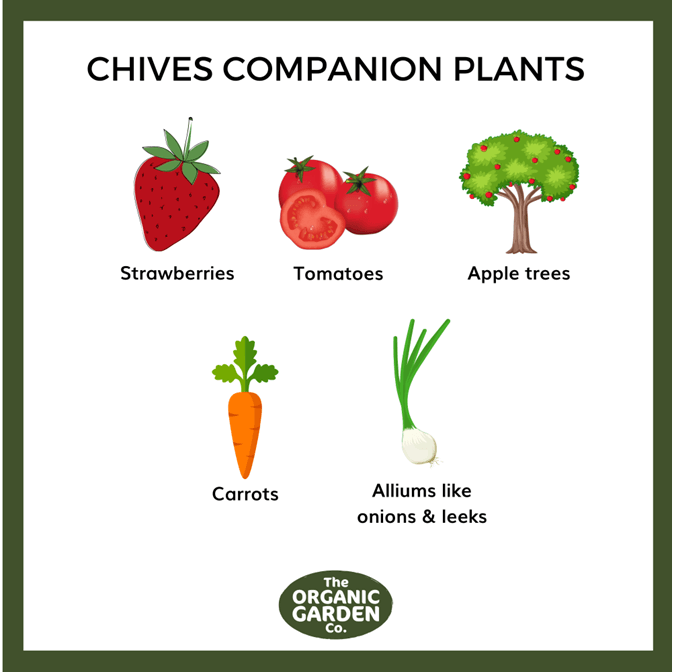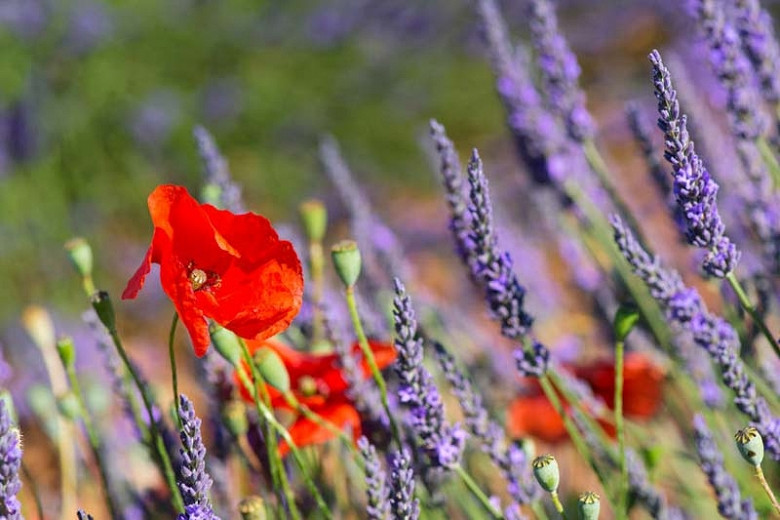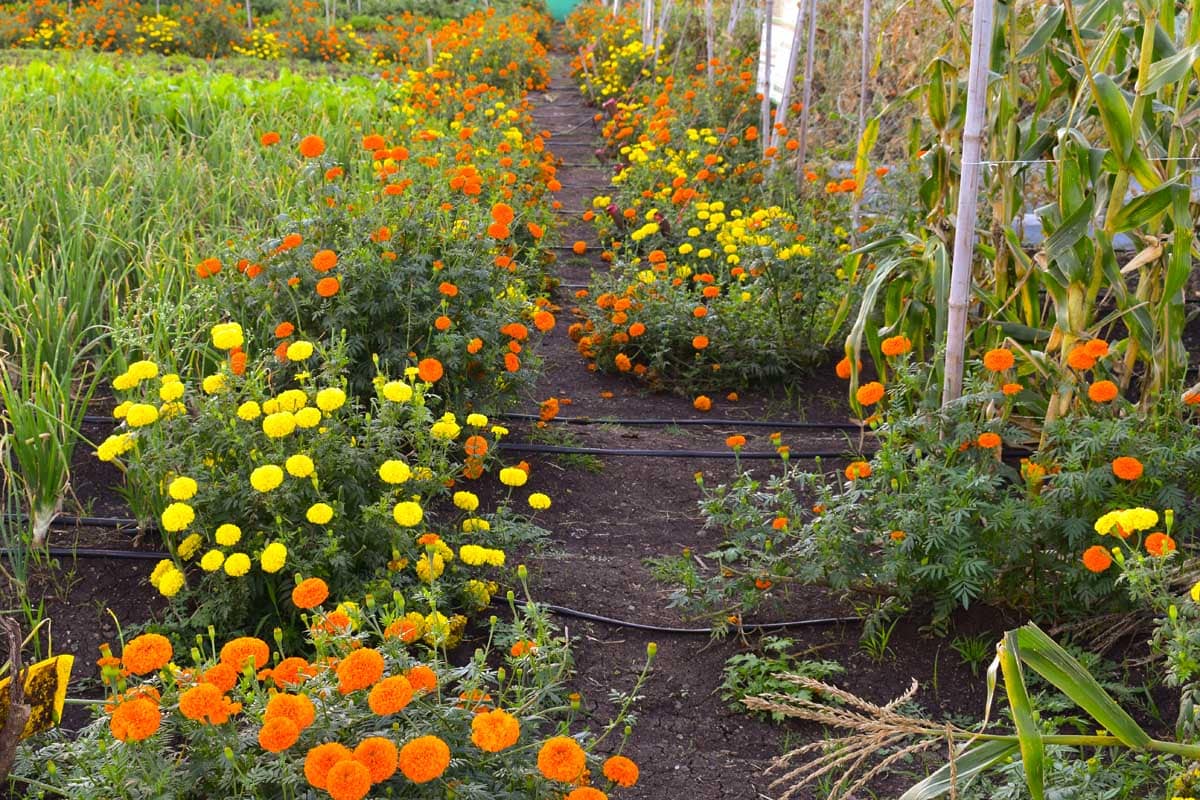Best Wormwood Companion Plants For Pest Control
Title: Best Wormwood Companion Plants for Pest Control
Introduction:
Wormwood (Artemisia absinthium) is a tall, hardy perennial herb that is native to Europe and Asia. It has a strong, pungent scent that is said to repel insects, rodents, and other pests. Wormwood has been used for centuries as a natural insect repellent, and it is still commonly used in gardens today.
When planting wormwood, it is important to consider its companion plants. Some plants can help to enhance the pest-repelling properties of wormwood, while others can actually weaken them. In this blog post, we will discuss the best wormwood companion plants for pest control.
Main Content:
1. Chamomile
Chamomile (Matricaria recutita) is a delicate, daisy-like flower that is known for its calming properties. It is also a great companion plant for wormwood. Chamomile helps to repel pests like aphids, cabbage moths, and spider mites. It also helps to attract beneficial insects, such as ladybugs and lacewings, which prey on pests.
2. Dill
Dill (Anethum graveolens) is a flavorful herb that is often used in cooking. It is also a great companion plant for wormwood. Dill helps to repel pests like carrot flies, cabbage worms, and tomato hornworms. It also helps to attract beneficial insects, such as hoverflies and parasitic wasps.
3. Lavender
Lavender (Lavandula angustifolia) is a fragrant herb that is known for its beauty and its calming properties. It is also a great companion plant for wormwood. Lavender helps to repel pests like mosquitoes, moths, and ants. It also helps to attract beneficial insects, such as bees and butterflies.
4. Marigolds
Marigolds (Tagetes spp.) are bright, cheerful flowers that are often used in gardens. They are also great companion plants for wormwood. Marigolds help to repel pests like nematodes, aphids, and whiteflies. They also help to improve the soil around wormwood plants, making them more resistant to pests and diseases.
5. Mint
Mint (Mentha spp.) is a versatile herb that can be used in cooking, in tea, and even as a natural insect repellent. It is also a great companion plant for wormwood. Mint helps to repel pests like mosquitoes, ants, and fleas. It also helps to improve the drainage around wormwood plants, preventing root rot.
6. Oregano
Oregano (Origanum vulgare) is a flavorful herb that is often used in Italian cooking. It is also a great companion plant for wormwood. Oregano helps to repel pests like mosquitoes, flies, and aphids. It also helps to attract beneficial insects, such as ladybugs and lacewings.
7. Parsley
Parsley (Petroselinum crispum) is a flavorful herb that is often used in cooking. It is also a great companion plant for wormwood. Parsley helps to repel pests like carrot flies, cabbage worms, and tomato hornworms. It also helps to attract beneficial insects, such as hoverflies and parasitic wasps.
8. Rosemary
Rosemary (Rosmarinus officinalis) is a fragrant herb that is known for its culinary and medicinal properties. It is also a great companion plant for wormwood. Rosemary helps to repel pests like mosquitoes, moths, and ants. It also helps to improve the drainage around wormwood plants, preventing root rot.
9. Sage
Sage (Salvia officinalis) is a flavorful herb that is often used in cooking. It is also a great companion plant for wormwood. Sage helps to repel pests like cabbage moths, spider mites, and thrips. It also helps to attract beneficial insects, such as ladybugs and lacewings.
10. Thyme
Thyme (Thymus vulgaris) is a flavorful herb that is often used in cooking. It is also a great companion plant for wormwood. Thyme helps to repel pests like mosquitoes, flies, and aphids. It also helps to attract beneficial insects, such as hoverflies and parasitic wasps.
Conclusion:
Wormwood is a valuable herb that can be used to repel pests in the garden. By planting it with the right companion plants, you can enhance its pest-repelling properties and create a more pest-resistant garden.
Wormwood is a strong-scented herb that can be a useful companion plant in the garden. It can deter pests such as aphids, carrot flies, and cabbage loopers. However, it is important to note that wormwood can also inhibit the growth of some plants, such as fennel, sage, caraway, and anise.
To learn more about which plants are good companion plants for wormwood, visit Home Gardening. This website provides a comprehensive list of companion plants for a variety of herbs, including wormwood. You can also find information on how to plant and care for wormwood, as well as its medicinal and culinary uses.
FAQ of wormwood companion plant
- What are some good companion plants for wormwood?
Wormwood is a relatively versatile plant and can be grown with a variety of other plants. Some good companion plants for wormwood include:
Carrots: Wormwood can help to repel carrot flies, which are a common pest of carrots.
Leeks, onions, and other alliums: These plants can help to repel pests like aphids and cabbage loopers.
Sage and rosemary: These herbs have similar growing requirements to wormwood and can help to deter pests.
Chamomile: Chamomile can help to improve the soil quality around wormwood and attract beneficial insects.
Lavender: Lavender can help to mask the strong scent of wormwood and attract pollinators.
What plants should I avoid planting near wormwood?
Wormwood can be toxic to some plants, so it is important to avoid planting it near:
Fennel, caraway, and anise: These plants are closely related to wormwood and can be affected by the same toxins.
Other herbs with a similar flavor profile, such as tarragon and sage: The strong scent of wormwood can mask the flavor of these herbs.
Edible plants: Wormwood can inhibit the growth of edible plants, so it is best to avoid planting it near your vegetable garden.
Can I grow wormwood from cuttings?
Yes, wormwood can be easily propagated from cuttings. Simply take a 6-inch cutting from a healthy plant in the spring or fall and plant it in well-draining soil. Keep the soil moist until the cutting has rooted, which should take about 2-3 weeks.
- Where does wormwood grow best?
Wormwood is a hardy plant that can tolerate a wide range of conditions. It prefers full sun and well-drained soil, but it can also tolerate partial shade and moist soil. Wormwood is drought-tolerant once established, but it will benefit from regular watering during the first year of growth.
- What are the benefits of planting wormwood?
Wormwood has a number of benefits, including:
- Repelling pests: Wormwood has a strong scent that can deter a variety of pests, including aphids, cabbage loopers, carrot flies, and mosquitoes.
- Improving soil quality: Wormwood can help to improve the drainage and fertility of soil.
- Attracting beneficial insects: The strong scent of wormwood can attract beneficial insects, such as ladybugs and hoverflies, which help to control pests.
- Adding a decorative element to the garden: Wormwood has attractive silvery leaves that can add a touch of interest to any garden.
Image of wormwood companion plant
- Chives. Chives are a good companion plant for wormwood because they help to repel pests.

- Cucumbers. Cucumbers can benefit from the presence of wormwood, as it can help to repel cucumber beetles.

- Onions. Like chives, onions are also a good companion plant for wormwood because they help to repel pests.

- Garlic. Garlic is another good companion plant for wormwood, as it also helps to repel pests.

- Potatoes. Wormwood can help to repel the Colorado potato beetle, which is a common pest of potatoes.

- Sunflowers. Sunflowers can help to attract beneficial insects, which can help to control pests in the area.
- Lavender. Lavender is a fragrant plant that can help to deter pests.

- Marigolds. Marigolds are another fragrant plant that can help to deter pests.

- Nasturtiums. Nasturtiums are also a good companion plant for wormwood, as they can help to attract pollinators.

- Tomatoes. Wormwood can help to repel nematodes, which are a common pest of tomatoes.

Post a Comment for " Best Wormwood Companion Plants For Pest Control"